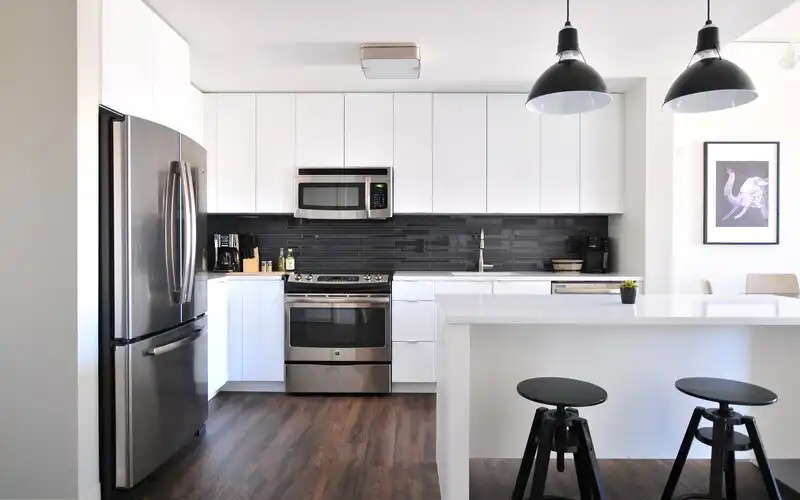If you are looking to sell your house or wondering whether or not now is the right time, knowing how much your home is worth is key to planning your next step. The difficulty however lies in working out the actual monetary value of your property while being mindful of the fact that regardless of your home's condition, its value will be heavily influenced by the housing market as well as buying demand.
Buying a home or looking to refinance? The table below features home loans with some of the lowest interest rates on the market for owner occupiers.
| Lender | Home Loan | Interest Rate | Comparison Rate* | Monthly Repayment | Repayment type | Rate Type | Offset | Redraw | Ongoing Fees | Upfront Fees | LVR | Lump Sum Repayment | Additional Repayments | Split Loan Option | Tags | Features | Link | Compare |
|---|---|---|---|---|---|---|---|---|---|---|---|---|---|---|---|---|---|---|
6.04% p.a. | 6.06% p.a. | $2,408 | Principal & Interest | Variable | $0 | $530 | 90% | Featured 4.6 Star Customer Ratings |
| |||||||||
5.99% p.a. | 5.90% p.a. | $2,396 | Principal & Interest | Variable | $0 | $0 | 80% | Featured Apply In Minutes |
| |||||||||
6.09% p.a. | 6.11% p.a. | $2,421 | Principal & Interest | Variable | $0 | $250 | 60% | Featured Unlimited Redraws |
|
How is my property's value calculated?
There are a number of different ways to value a property, from basic valuations using local sales and market reports to more in-depth valuations by agent appraisals, bank valuations and other desktop or automated valuations.
A property valuation is a detailed report of a property’s market value. The valuation report created by a qualified valuer is a legal document and used for a variety of purposes. When lenders are evaluating your mortgage loan application, they will need a valuation as proof of the value of the property you’re purchasing.
Property valuation considers a number of key factors that we will look at below.
Housing demand
Generally your property will be worth more if there is a shortage of housing in your area, coupled with high demand. On the other hand, if there is a lack of buyer demand in your area or too many houses on the market, your property’s value may result in a lower overall worth.
Local area pricing
Taking the opportunity to look at other houses in your area that are around the same size and have sold recently allows you to get a feel for your own property’s worth as well as analysing just how active the local real estate market is.
Objectivity is important when comparing your property to others in the area, as otherwise you may think that your property is worth more than it actually is. It’s important to also ensure you utilise local sales data from no more than 3 months ago, and if the market is busy be aware that 3-month-old data will be outdated.
Location
Location is a key determinant influencing property value. Generally speaking, a house near the CBD, in a popular coastal area, close to good schools or with easy access to public transport will be valued greater than a home on the outskirts of town with access to only a small number of resources.
While you cannot change the location of your property, it is important to be aware that the desirability of certain areas can come in and out of fashion, so your house could potentially be worth more now than it did when you first purchased it.
Property condition
The greater the overall condition of your property, the more value is added. This does not just account for the external condition of your house but also includes how structurally sound the property is. Reducing cracking, having strong foundations and a secure roof are features that make up a valuable property.
Size and layout
The size and layout of your property also plays a key role in determining its value. A property with more than one bathroom, multiple bedrooms and a cohesive overall layout will generally be viewed as more appealing and valued higher. In saying this, many buyers will choose location over size and layout, however it does depend on other factors such as the demographic interested in the property.
Why should I track the value of my home?
Tracking your property value allows you to obtain a greater understanding of the current real estate market, monitoring estimated value and learning about recent property sales for similar properties.
As you track home value in your area over time, you will begin to develop a sense of market trends in your area. For instance, if you notice that the selling price of homes similar to your own are increasing, you can typically conclude that the value of your property may also be on the rise. If homes similar to yours are on the market for longer and have a lower selling price, you may observe that the market value of your property may be decreasing.
Resources provided by CoreLogic and sites such as realestate.com.au and Domain allow home owners to track property values from the comfort of their own home. It’s important to remember searches are indicators of the current state of the market, not actual facts, so conducting research and consulting banks or registered property valuers can be a benefit to understanding your true property value.
Can property value impact my home loan?
Whether you are dipping your toes into the property market for the first time, purchasing a new home or refinancing, bank valuations are used to determine the loan to value ratio (LVR) in a home loan application. This will ultimately impact the amount that a bank or lender is willing to provide to fund your home loan. Bank valuations are for mortgage purposes only, therefore they shouldn’t serve as a reliable point-of-call for the state of the current property market and ultimately overall property value.
During the home loan application process, a bank or lender will assess the LVR of a borrower in order to determine their risk. Ultimately, the more equity a borrower has, the lower their LVR will be and the ‘safer’ they’ll be regarded. As property values increase so does home equity, being the difference between what a property is worth and the outstanding balance of any mortgage. For your home loan, increased property values and therefore increased equity may result in you being pushed into into a lower LVR tier, presenting an opportunity to refinance your home loan to a more suitable fixed or variable rate.
Read more: Choosing between a fixed or variable rate home loan
Savings.com.au’s two cents
It’s important to understand there’s no one magical figure to determine just how much your property is worth as the property market within each state or territory varies substantially. To help you determine just how much your property is worth, there are a number of factors to consider including housing demand, region pricing and location. Having an inner-city two-storey house located on the waterfront and close to amenities is always going to be worth more than a two-storey house located in a small country town far from resources - that’s just the way the market works.
A property valuation can provide you with the knowledge of your home’s potential worth, suburb trends and future growth potential in relation to real estate market trends. Keeping tabs on your property’s worth is important given recent property market movement as you may find significant value in refinancing, potentially saving you thousands over the life of your home loan.
Image by Naomi Hebert via Unsplash

Ready, Set, Buy!
Learn everything you need to know about buying property – from choosing the right property and home loan, to the purchasing process, tips to save money and more!
With bonus Q&A sheet and Crossword!






 Emma Duffy
Emma Duffy
 Harrison Astbury
Harrison Astbury
 Rachel Horan
Rachel Horan

 Brooke Cooper
Brooke Cooper

